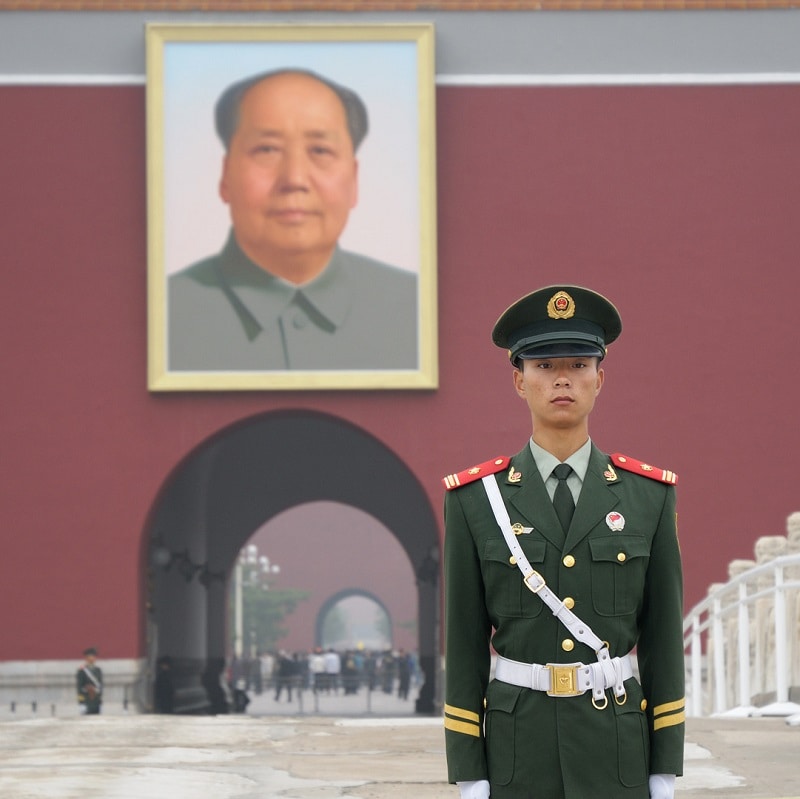One expert gets on CNN and says 5G a lot. Another warns of China’s AI dominance. A congressman goes on Fox and animatedly talks about the South China Sea. Another goes on MSNBC and laments forced labor in Xinjiang. Collectively, we hear about review panels and posture reviews, and trade policy reviews at the same time that over 200 bills mentioning China vie for priority within our federal legislature.
Add all of this up and it’s clear that the wheels in Washington are turning slowly but surely. Unfortunately, it’s equally clear that the U.S. has no coherent overarching policy towards China. The very phrase ‘strategic competition’ used by the Biden administration to frame the U.S./China relationship guarantees that: it’s meant to invoke that we’ll compete where we need to and cooperate where in our interests.
That sounds reasonable, of course, but a term that vague will end up revealed only as a moving target. More importantly, as a concept it’s too passive to be sustainable, to avoid getting swept along with the currents. Which areas of cooperation versus competition? What balance between the two? Which interests?
The conventional thinking – as laid out in Foreign Affairs and other publications of the Washington consensus – is that the new Cold War with China is inevitable and that it’s here. Instead, here’s a different way to think about a new Cold War with China. It’s not only not inevitable, we can choose it or not choose it.
Our commitment is not to hegemony, it’s to protecting and defending the U.S. Constitution and the people who populate that land so-governed. That can happen in a multipolar world or a unipolar one. This free nation can choose either outcome.
The problem we have with China isn’t that great power competition is inevitable or ultimately zero-sum, even if those things are true. The problems we have with China are twofold:
-
China is rejecting core elements of the international security and trade order that have benefited Americans for generations. To the extent that we decide those elements are worth defending, conflict plainly lies ahead.
-
Even an America that truly turns inward would still embrace risk. Other periods of isolationism did not provide their own presumed peace dividend. A powerful China may seek to destabilize or attack even a United States that abandons its international system of alliances.
As I’ve stated here and elsewhere previously, probably the most important thing America can do when it comes to China policy is to surface and reveal its own internal consensus on China. Do we want to defend those core elements of the world order or back off and accept China establishing its own regional manifest destiny? Understanding the two presumptions above can help us in that decision.
In the absence of that measured conversation, we look instead to demonstrated consensus. In light of the consistent bipartisan tough-talk towards China, let’s presume the more hawkish path as a consensus strong enough to be actionable. If that is so, we should marvel not at the attention China receives but be alarmed by the lack of a coherent and timely turn towards it. Sure, there’s plenty of activity, but very little change in the facts on the ground. Put more simply, the U.S. is stuck in a rut: lots of tough-talk, a lot less follow through.
So if the actionable consensus isn’t leading to timely action, then it isn’t one.
This leads me to the final element of this thought exercise. America is a country with outsized commitments that’s failed to stress test the domestic consensus for maintaining them. Similarly, we’ve failed to make the tactical adjustments needed to forestall our following through on them in very costly ways. Put more simply, a failure to invest in deterrence now will lead to increased security costs later.
The lack of will should tell us something: the hawkish view may be more popular in rhetoric than in reality. Politicians love sounding off about China, but a missing Pivot and rounds of jitters about Taiwan may put the lie to that noise.
That potential gap in rhetoric versus reality will be revealed, and painfully. The era of strategic ambiguity is ending, the mask has slipped. What we are seeing now is the hard math behind power, and America has fallen behind on those global security equations.
Now a 1945 Contributing Editor, Jason Killmeyer is a counterterrorism and foreign policy expert specializing in emerging technology applications. For more than ten years, Jason worked in national security, including as Chief of Staff of Global Defense, Security & Justice at Deloitte Consulting LLP. Jason has a Master’s in Middle Eastern Studies with an M.A. thesis on post-invasion Iraqi politics.

